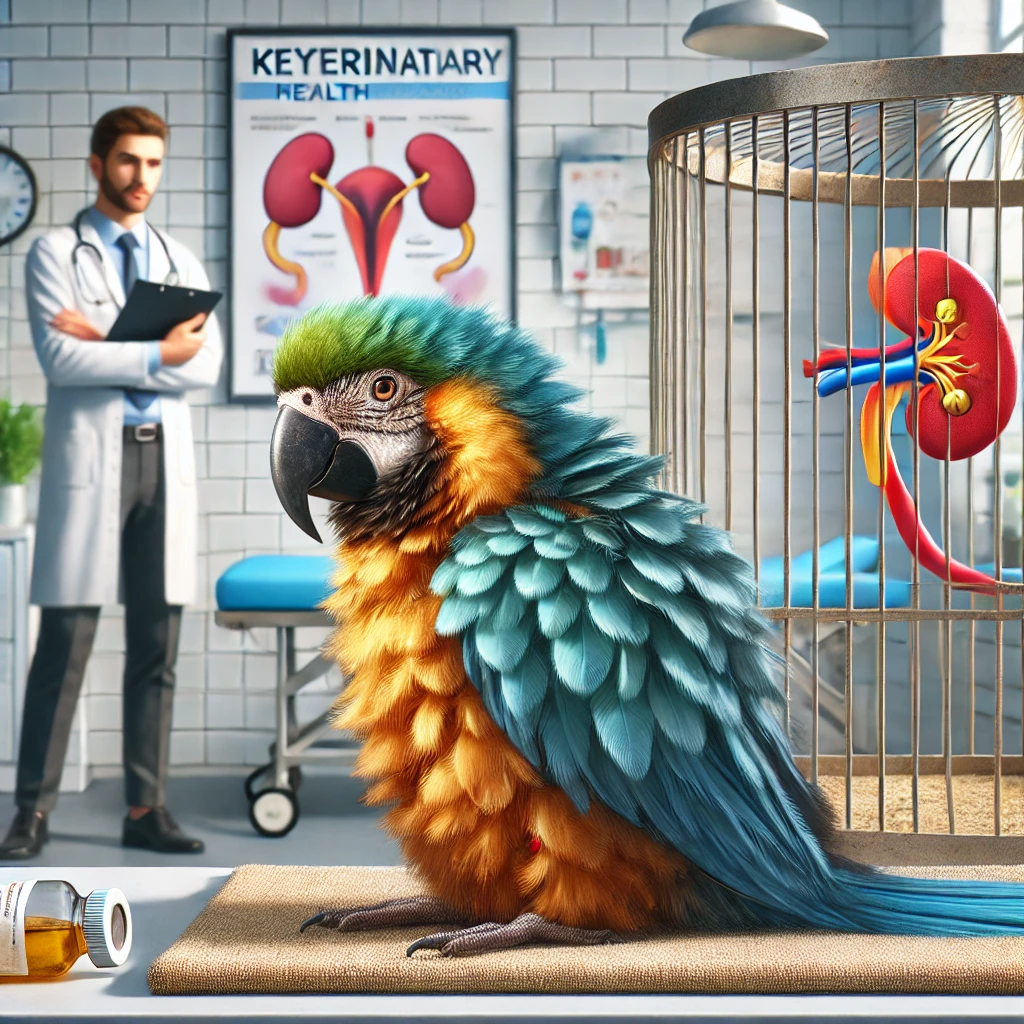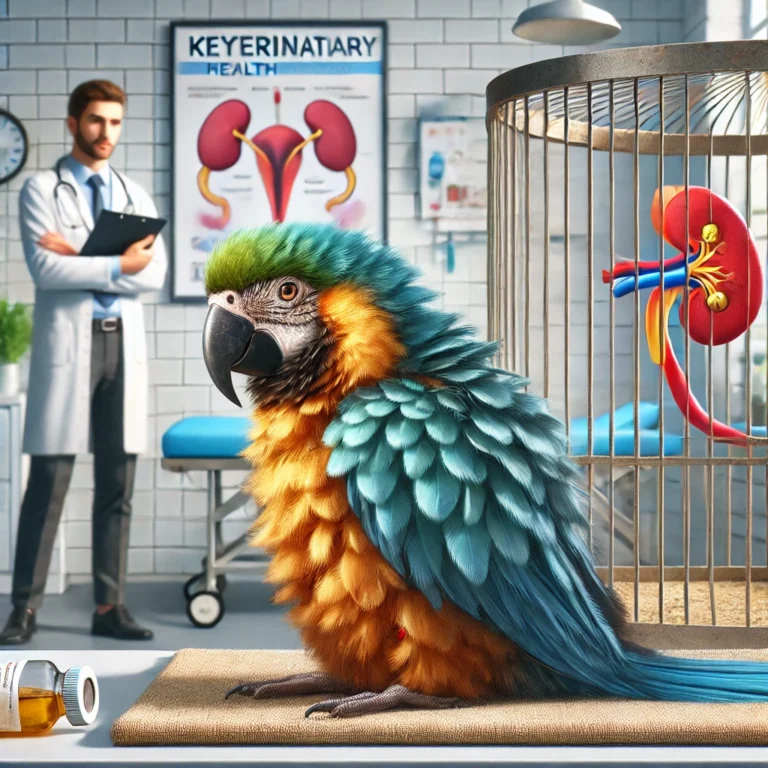8 Warning Signs of Kidney Disease in Macaw Parrots: What Every Owner Should Know
Kidney disease in macaw parrots is a serious condition that can affect their overall health and lifespan. Birds often hide signs of illness, so it is crucial for macaw owners to recognize early symptoms of kidney disease and seek veterinary care as soon as possible. Here are eight warning signs that your macaw parrot may have kidney disease.
1. Increased Thirst and Urination
A key symptom of kidney disease in macaws is excessive drinking and frequent urination. Healthy macaws usually produce minimal liquid waste, but if you notice more watery droppings or increased visits to the water dish, kidney issues might be a concern. Increased thirst is the body’s way of compensating for kidney inefficiency, which leads to the bird drinking more water than usual.
2. Changes in Droppings
Kidney disease often leads to changes in a bird’s droppings. Watery or pale urates (the white portion of droppings) may indicate kidney dysfunction. Normal macaw droppings should have a firm, well-defined fecal portion with a distinct white urate cap. If the droppings become consistently abnormal, such as excessively watery or lacking a solid portion, it is time to consult a veterinarian. Long-term changes in droppings can also be indicative of chronic kidney issues.
3. Lethargy and Weakness
A sick macaw may show signs of reduced activity, reluctance to fly, or spending more time at the bottom of the cage. Kidney disease can make your bird feel weak and less interested in its usual activities. Birds are naturally energetic and curious, so any noticeable drop in activity levels should raise concern. If your macaw appears to be perching less, sleeping more, or is unwilling to engage with toys or people, it could be an early sign of kidney dysfunction.
4. Poor Appetite and Weight Loss
Macaws with kidney disease may eat less than usual or show signs of weight loss. Since birds have a fast metabolism, any prolonged loss of appetite can lead to severe health issues. A kidney-compromised macaw may refuse its favorite treats or show disinterest in eating. Owners should regularly monitor their bird’s weight, as gradual weight loss is a strong indicator of underlying health problems.
5. Fluffed-Up Feathers and Depression
When a macaw is feeling unwell, it may sit with its feathers puffed up for extended periods. This is a common sign of discomfort or illness. A depressed or withdrawn macaw that avoids social interaction may also be experiencing kidney problems. Fluffing up is a way for birds to conserve body heat when they feel weak, so consistent feather puffing combined with lethargy is a red flag.
6. Swollen or Painful Joints
In advanced cases of kidney disease, excess uric acid can accumulate in the joints, causing gout. This can lead to swelling, pain, and difficulty perching or climbing. If your macaw shows signs of joint discomfort, it needs immediate veterinary care. Birds suffering from gout may hold up a foot, avoid gripping perches, or show signs of pain when moving.
7. Labored Breathing and Weak Voice
Kidney disease can cause fluid retention and other complications that affect breathing. If your macaw is breathing heavily, wheezing, or experiencing a weaker or hoarse voice, it may be suffering from an underlying health issue. Birds use vocalization to communicate, and a sudden change in the tone, frequency, or volume of your macaw’s calls should be taken seriously.
8. Dehydration and Dry Skin
Since kidney disease can cause dehydration, affected macaws may develop dry skin, dull feathers, or flaky beaks. Proper hydration is crucial for maintaining their health, and a dehydrated bird needs prompt medical attention. Dehydration can also lead to sunken eyes and an overall sickly appearance.
What to Do If You Notice These Signs
If you suspect your macaw parrot has kidney disease, take these steps:
- Schedule a visit to an avian veterinarian for a thorough check-up.
- Provide fresh water and a balanced diet with kidney-supportive nutrients.
- Minimize stress and ensure a warm, comfortable environment.
- Follow any prescribed treatments, such as medications or dietary changes.
- Monitor your macaw’s symptoms and keep a health journal to track any changes over time.
Preventing Kidney Disease in Macaws
To reduce the risk of kidney disease, take proactive steps:
- Offer a high-quality diet rich in fruits, vegetables, and low-protein foods.
- Avoid excessive vitamin D and calcium supplements, which can strain the kidneys.
- Ensure your macaw stays hydrated and has access to clean, fresh water.
- Regularly clean their cage and provide a hygienic living space.
- Schedule routine vet checkups to monitor overall health.
- Limit exposure to toxins, including heavy metals, pesticides, and certain household chemicals.
Conclusion
Early detection and proper management can help your macaw live a long and healthy life. Kidney disease is a serious condition, but with timely intervention, proper nutrition, and veterinary support, affected macaws can continue to thrive. If you notice any of these warning signs, seek veterinary care immediately to give your parrot the best chance of recovery



